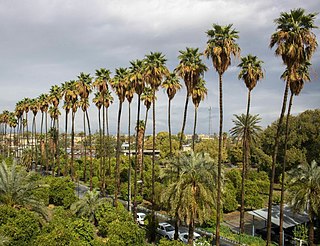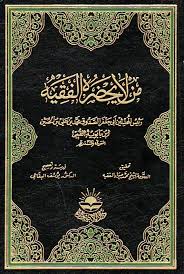
Muslims are people who adhere to Islam, a monotheistic religion belonging to the Abrahamic tradition. They consider the Quran, the foundational religious text of Islam, to be the verbatim word of the God of Abraham as it was revealed to Muhammad, the main Islamic prophet. Alongside the Quran, Muslims also believe in previous revelations, such as the Tawrat (Torah), the Zabur (Psalms), and the Injeel (Gospel). These earlier revelations are associated with Judaism and Christianity, which are regarded by Muslims as earlier versions of Islam. The majority of Muslims also follow the teachings and practices attributed to Muhammad (sunnah) as recorded in traditional accounts (hadith).

Sufism, also known as Tasawwuf, is a mystic body of religious practice found within Islam which is characterized by a focus on Islamic purification, spirituality, ritualism, asceticism, and esotericism. It has been variously defined as "Islamic mysticism", "the mystical expression of Islamic faith", "the inward dimension of Islam", "the phenomenon of mysticism within Islam", the "main manifestation and the most important and central crystallization" of mystical practice in Islam, and "the interiorization and intensification of Islamic faith and practice".

The "Clash of Civilizations" is a thesis that people's cultural and religious identities will be the primary source of conflict in the post–Cold War world. The American political scientist Samuel P. Huntington argued that future wars would be fought not between countries, but between cultures. It was proposed in a 1992 lecture at the American Enterprise Institute, which was then developed in a 1993 Foreign Affairs article titled "The Clash of Civilizations?", in response to his former student Francis Fukuyama's 1992 book The End of History and the Last Man. Huntington later expanded his thesis in a 1996 book The Clash of Civilizations and the Remaking of World Order.

Christianity and Islam are the two largest religions in the world, with 2.8 billion and 1.9 billion adherents, respectively. Both religions are considered as Abrahamic, and are monotheistic, originating in the Middle East.

Muhammad Khatami is an Iranian reformist politician who served as the fifth president of Iran from 3 August 1997 to 3 August 2005. He also served as Iran's Minister of Culture from 1982 to 1992. Later, he was critical of the government of subsequent President Mahmoud Ahmadinejad.

Jiroft is a city in the Central District of Jiroft County, Kerman province, Iran, serving as capital of both the county and the district. It is 230 kilometres (140 mi) south of the city of Kerman, and 1,375 kilometres (854 mi) south of Tehran along Road 91.
Anti-Islam or anti-Muslim may refer to:

Constantin Zurayk was a prominent and influential Syrian Arab intellectual who was one of the first to pioneer and express the importance of Arab nationalism. He stressed the urgent need to transform stagnant Arab society by means of rational thought and radical modification of the methods of thinking and acting. He developed some ideas, such as the "Arab mission" and "national philosophy", which were to become key concepts for Arab nationalist thinkers, and in more recent years was a strong proponent of an intellectual reformation of Arab society, emphasizing the need for rationalism and an ethical revolution.

Oriental studies is the academic field that studies Near Eastern and Far Eastern societies and cultures, languages, peoples, history and archaeology. In recent years, the subject has often been turned into the newer terms of Middle Eastern studies and Asian studies. Traditional Oriental studies in Europe is today generally focused on the discipline of Islamic studies; the study of China, especially traditional China, is often called Sinology. The study of East Asia in general, especially in the United States, is often called East Asian studies.
In Islamic legal terminology, bāligh or mukallāf or muhallāq or murāhiq or muhtalim refers to someone who has reached maturity or puberty, and has full responsibility under Islamic law.
Muslim scholars have developed a spectrum of viewpoints on science within the context of Islam. The Quran and Islam allows much interpretation when it comes to science. Scientists of medieval Muslim civilization contributed to the new discoveries in science. From the eighth to fifteenth century, Muslim mathematicians and astronomers furthered the development of almost all areas of mathematics. At the same time, concerns have been raised about the lack of scientific literacy in parts of the modern Muslim world.

Man lā Yaḥḍuruhu al-Faqīh is a Hadith collection by the famous Twelver Shia Hadith scholar Abu Jaʿfar Muḥammad ibn ʿAli ibn Babawayh al-Qummi, commonly known as Ibn Babawayh or Sheikh al-Saduq. This work is included among the Four Books of Twelver Shia Islam.

The Western world, also known as the West, primarily refers to various nations and states in the regions of Australasia, Western Europe, and Northern America; with some debate as to whether those in Eastern Europe and Latin America also constitute the West. The Western world likewise is called the Occident in contrast to the Eastern world known as the Orient. The West is considered an evolving concept; made up of cultural, political, and economic synergy among diverse groups of people, and not a rigid region with fixed borders and members. Definitions of "Western world" vary according to context and perspectives.

Western culture, also known as Western civilization, European civilization, Occidental culture, or Western society, includes the diverse heritages of social norms, ethical values, traditional customs, belief systems, political systems, artifacts and technologies of the Western world. The core of Western civilization, broadly defined, is formed by the combined foundations of Greco-Roman civilization and Western Christianity. While Western culture is a broad concept, and does not relate to a region with fixed members or geographical confines, it generally relates to the cultures of countries with historical ties to a European country or a number of European countries, or to the variety of cultures within Europe itself. However, countries toward the east of Europe are sometimes excluded from definitions of the Western world.

The Sharjah Museum of Islamic Civilization is a museum in Sharjah, United Arab Emirates (UAE). The museum, opened in 2008, covers Islamic culture, with more than 5,000 artifacts from the Islamic world. Objects include calligraphy, carvings, ceramics, coins, glass, manuscripts, metalwork, and scientific instruments. It was formerly known as the Islamic Museum and opened in 1996 before being moved and re-housed in the current building.

Hamid bin Ahmad Al Rifaie is a Saudi Arabian activist and thinker, president of the International Islamic Forum for Dialogue , and co-president of the World Muslim Congress.
Qomrud, also Romanized as Qomrūd and Qumrūd, is a village in, and the capital of, Qomrud Rural District of the Central District of Qom County, Qom province, Iran.

Kandolus, also Romanized as Kandelous, Kandolūs, Kandelūs, Kandloos, and Kandlūs; also known as Gendulas, is a village in Zanus Rastaq Rural District of Kojur District, Nowshahr County, Mazandaran province, Iran.
Abū Yaʿlā Muḥammad ibn al-Ḥusayn Ibn al-Farrāʾ, commonly known as al-Qāḍī Abū Yaʿlā or simply as Ibn al-Farrāʾ, is a great Hanbali Jurist, Athari theologian and a major authority in the Hanbali school of Jurisprudence, titled by some as 'The Pillar of the School'. He was a Mujaddid and Mujtahid scholar, and one of the early Muslim jurists who played dynamic roles in formulating a systematic legal framework and constitutional theory on Islamic system of government during the first half of the 5th/11th Century in Baghdad. From amongst his students was the great Imam Mahfūz al Kalwadhānī, another leading major Hanbali Mujtahid scholar.

Moshe Sharon is an Israeli historian of Islam.














